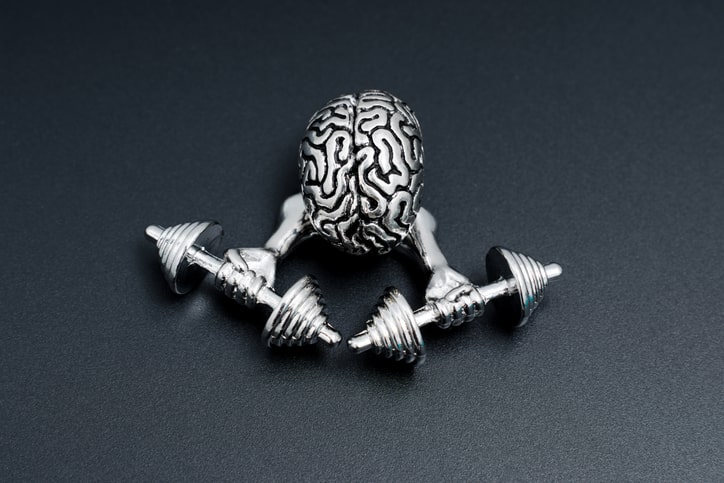Regular exercise has a significant positive impact on mental health, improving mood and reducing the risk of mental health conditions. Exercise plays a vital role in maintaining overall well-being and promoting a healthy mind.
It has been proven to alleviate symptoms of anxiety and depression, enhance cognitive function, and boost self-esteem. Through physical activity, the body releases endorphins, which are known as “feel-good” hormones that can alleviate stress and improve mood. Engaging in exercise also provides opportunities for social interaction, helping to combat feelings of isolation and loneliness.
The connection between exercise and mental health is evident, with physical activity being an effective and accessible way to support and improve mental well-being.
The Impact Of Exercise On Mental Health
Engaging in regular exercise has a profound impact on mental health. The benefits extend beyond physical well-being and contribute significantly to psychological wellness, making exercise a crucial component of a holistic approach to mental health care.
Physical Benefits
Regular exercise has a multitude of physical benefits that directly contribute to improved mental health. These include
reducing the risk of chronic diseases such as heart disease and diabetes,
boosted immune system,
enhanced sleep quality, and
increased energy levels, all of which play a key role in promoting positive mental well-being.
Psychological Benefits
Engaging in
physical activity also has a substantial impact on psychological well-being. The release of endorphins during exercise helps
alleviate symptoms of depression and anxiety, enhances mood, boosts self-esteem, and facilitates stress management, fostering a
positive mindset and overall mental equilibrium.
Understanding The Relationship
There is a profound connection between exercise and mental health, with numerous studies highlighting the positive impact physical activity can have on our emotional well-being. Engaging in regular exercise not only benefits our physical health, but it also plays a crucial role in maintaining a healthy mind. In this article, we will explore the key ways in which exercise positively affects mental health.
Release Of Endorphins
When we exercise, our body releases chemicals known as endorphins, which are often referred to as the “feel-good” hormones. These endorphins interact with receptors in the brain, reducing our perception of pain and creating a sense of euphoria. This natural high can help combat symptoms of stress, anxiety, and depression.
Reduced Levels Of Stress Hormones
Exercise also contributes to the reduction of stress hormones, such as cortisol, which is commonly associated with the body’s stress response. When we engage in physical activity, our body shifts its focus away from stress triggers, allowing us to escape the cycle of negative thoughts. By regularly exercising, we not only minimize the presence of stress hormones in our system but also create a positive and uplifting mindset.
The link between exercise and mental health is a powerful one. By understanding how physical activity affects our emotional well-being, we can make informed choices to prioritize exercise as part of our self-care routine. Whether it’s going for a jog, practicing yoga, or playing a sport, incorporating regular exercise into our lives can significantly improve our mental and emotional state.
Types Of Exercises For Mental Health
Maintaining good mental health is just as important as taking care of your physical health. One effective way to support your mental well-being is through regular exercise. Engaging in different types of exercises can have a positive impact on your mental health.
Aerobic Exercises
Aerobic exercises, also known as cardio exercises, increase your heart rate and get your blood pumping. These types of exercises stimulate the release of endorphins, which are natural chemicals in the brain that help improve mood and reduce stress. Some examples of aerobic exercises include:
- Brisk walking
- Running or jogging
- Cycling
- Dancing
- Swimming
Strength Training
Strength training exercises involve resistance or weight-bearing activities that build muscle strength and endurance. These exercises help regulate the production of stress hormones and enhance the brain’s ability to handle stress. Here are a few examples of strength training exercises:
- Lifting weights
- Using resistance bands
- Bodyweight exercises such as push-ups and squats
- Pilates
- Yoga
By incorporating aerobic exercises and strength training into your routine, you can support not only your physical health but also your mental well-being. Remember, consistency is key when it comes to reaping the mental health benefits of exercise. Find a type of exercise that you enjoy and make it a regular part of your routine to help improve your mental health.
Incorporating Exercise Into Daily Routine
Incorporating exercise into your daily routine is crucial for improving your mental health and overall well-being. It can seem challenging to add another task to your already busy schedule, but with a few simple adjustments, integrating exercise into your day can become effortless. By setting realistic goals and creating a support system, you can make exercising a consistent part of your routine.
Setting Realistic Goals
Instead of aiming for an intense hour-long workout every day, start small by setting achievable goals.
Beginning with a 15-minute walk or a quick yoga session can be a great way to ease into a new routine. Gradually increasing the duration and intensity of your workouts will ensure that you are
able to stay committed and motivated.
Creating A Support System
Having a support system can make a world of difference when it comes to incorporating exercise into your daily routine. Partnering up with a friend or family member can provide accountability and encouragement.
Moreover, joining a fitness class or club can also create a sense of community and
motivate you to stick to your exercise regimen.
Challenges And Solutions
The Connection Between Exercise And Mental Health: Challenges and Solutions
When it comes to incorporating exercise into our daily routine for improved mental health, many individuals face various challenges. It is vital to identify these obstacles and find effective solutions to maintain consistency in exercising.
Overcoming Barriers
Barriers:
- Time constraints
- Lack of motivation
- Physical limitations
Solutions:
- Schedule shorter, high-intensity workouts
- Find a workout buddy for accountability
- Explore low-impact exercises
Maintaining Consistency
Issues:
- Inconsistent schedule
- Boredom with routine
- Weather conditions
Tips:
- Set specific workout times each week
- Try different types of exercises
- Develop indoor workout alternatives
Frequently Asked Questions Of The Connection Between Exercise And Mental Health
What Is The Link Between Exercise And Mental Health?
Regular exercise is linked to improved mental health by reducing stress, anxiety, and depression. Physical activity releases endorphins that boost mood and overall well-being.
What Is The Relationship Between Physical Health And Mental Health?
Physical and mental health are closely linked, with poor physical health impacting mental well-being and vice versa. Exercise and healthy eating can improve mental health, while stress and anxiety can lead to physical health problems. Taking care of both is crucial for overall well-being.
How Does Regular Exercise Help To Reduce The Effects Of Mental Stress?
Regular exercise helps to reduce the effects of mental stress by releasing endorphins that improve mood. Exercise also promotes better sleep, boosts self-confidence, and provides a distraction from negative thoughts. It improves overall brain function and reduces anxiety and depression.
How Does Exercise Help Anxiety And Depression?
Exercise helps reduce anxiety and depression by increasing endorphins, boosting mood, and promoting relaxation. Physical activity also distracts you from worrying thoughts, improves sleep, and enhances self-esteem, making you feel better overall. Regular exercise is an effective and natural way to alleviate symptoms of anxiety and depression.
How Does Exercise Benefit Mental Health?
Regular exercise boosts mood, reduces stress, improves sleep, and enhances self-esteem and cognitive function.
Conclusion
Regular exercise has a profound impact on mental health, helping to reduce stress, anxiety, and depression. By incorporating physical activity into your routine, you can promote overall well-being and enhance your cognitive function. Embracing a holistic approach to health can lead to a happier and more balanced life.




